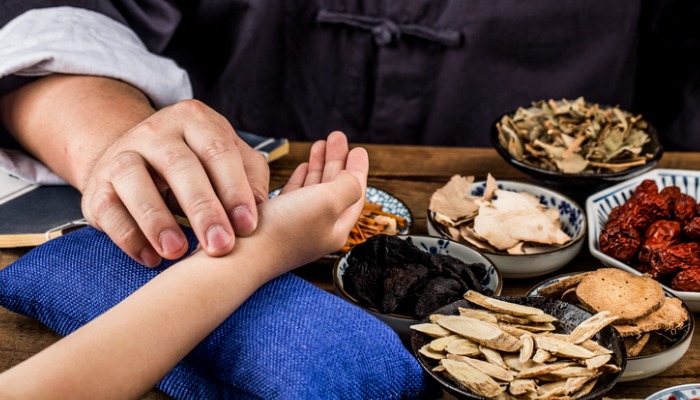For millennia, the Chinese people have harnessed the potent power of nature to enhance their well-being and achieve balance in mind, body, and spirit. Now, it’s time to discover how these herbs can transform your health and revitalize your life.
From centuries-old traditions to cutting-edge scientific research, this article will delve into the wonders of Chinese herbs, unveiling their many benefits and the extraordinary potential they hold for your health and wellness.
What are Chinese herbs?
Chinese herbs are a key component of traditional Chinese medicine (TCM), an ancient healing system that dates back thousands of years. Rooted in the belief that the human body is a microcosm of the natural world, Chinese herbs are a diverse array of medicinal plants, minerals, and animal substances. These herbs may offer numerous benefits including promoting balance, harmonizing energy, and restoring health by addressing the root causes of illnesses.
The use of Chinese herbs originated in ancient China. The earliest records of their use date back to the Shang Dynasty (1600 – 1046 BCE). The first known herbalist was Shennong, a mythical figure who is said to have tasted hundreds of herbs and identified their medicinal properties. His work, the Shennong Bencao Jing (Divine Farmer’s Materia Medica), is considered to be the foundational text of Chinese herbal medicine.
The use of Chinese herbs has evolved over the centuries, and there are now thousands of different herbs that are used in TCM. These herbs are classified according to their properties, such as their flavor, temperature, and energetic effect. Chinese herbalists use these properties to create formulas that are tailored to the individual needs of each patient.
What are the potential benefits of Chinese herbs?

Chinese herbs may be used for a wide range of health issues, including pain, anxiety, depression, insomnia, and digestive problems. They are also used to promote overall health and well-being.
The potential benefits of Chinese herbs are as diverse as the herbs themselves. TCM practitioners often tailor herb combinations to address an individual’s unique constitution and specific health concerns.
From relieving common colds to managing chronic problems, Chinese herbs offer a wide range of advantages. Here is a list of just a few of these research-backed benefits with examples of Chinese herbs that are commonly used to support each area.
- Immune Support: Astragalus (huang qi) and ganoderma (lingzhi) are known for their immune-enhancing properties, helping the body ward off infections and maintain vitality.1 2
- Stress Reduction: Adaptogenic herbs like ginseng (ren shen) and rhodiola (hong jing tian) contain properties that can help the body adapt to stress and promote emotional balance.3
- Digestive Health: Herbs such as hawthorn (shan zha) and ginger (gan jiang) can aid in digestion, alleviating symptoms like bloating and indigestion. 4 5
- Pain Relief: Corydalis yanhusuo (yan hu suo) and eucommia bark (du zhong) are often used to soothe various types of pain, including headaches and joint discomfort.6
- Skin Inflammation Relief: Chinese herbs like tribulus (bai ji li) and rehmannia (sheng di huang) have been utilized to address eczema and other skin issues.7
Are Chinese herbs safe to use?
When used correctly under the guidance of a qualified practitioner, Chinese herbs are generally considered safe. However, it is crucial to keep a few essential points in mind.
- Quality Assurance: Ensuring the quality and authenticity of Chinese herbs is vital. Reputable practitioners and suppliers adhere to stringent quality control standards, which significantly reduce the risk of contamination or adulteration.
- Individual Variability: Just as everyone’s constitution differs, individuals may react differently to certain herbs. Consultation with a trained TCM practitioner can help identify potential allergies or contraindications.
- Drug Interactions: It is essential to inform your healthcare provider about any herbs you are using, as they may interact with prescription medications.8
How to find a Chinese herbal practitioner

Finding a skilled TCM practitioner who incorporates Chinese herbs into their practice requires diligence and research. Here are some steps to guide you on this quest:
- Credentials and Training – Look for a practitioner who holds appropriate certifications and has completed formal training in Traditional Chinese Medicine and herbal therapy.
- Experience and Reputation – Seek out reviews and testimonials to gauge the practitioner’s track record and reputation within the community.
- Referrals – Ask for recommendations from friends, family, or other healthcare professionals who have had positive experiences with TCM practitioners.
- Consultation – Schedule an initial consultation to get to know the practitioner and their approach to Chinese herbal medicine. Assess their ability to address your concerns and create a personalized plan.
What to expect when taking Chinese herbs
When taking Chinese herbs, your experience may vary depending on the specific herbs prescribed, your individual health problems, and the expertise of your TCM practitioner. Here are some general expectations.
- Initial Consultation: Your journey with Chinese herbs typically begins with an initial consultation with a qualified TCM practitioner. They will take a detailed medical history, assess the state of your health, and identify any imbalances or patterns in your body’s vital energy, or qi, and organ systems. Based on this assessment, the practitioner will create a personalized herbal formula tailored to your specific needs.
- Herbal Formulas: Chinese herbs are rarely used in isolation. Instead, practitioners often combine multiple herbs in a carefully balanced formula to address the root cause of your health issues comprehensively. These formulas can be in the form of teas, decoctions, pills, powders, or tinctures, depending on practitioner and patient preferences.
- Gradual Progress: Unlike pharmaceutical drugs that may provide immediate relief, the effects of Chinese herbs are often more gradual. Some individuals may start noticing improvements in their symptoms relatively quickly, while others might experience a more gradual shift towards better health. The focus is on restoring balance and addressing the root cause, which may take time.
- Individual Response: Individual responses to Chinese herbs can vary. Some people may experience significant improvements, while others may find only subtle changes. It is essential to communicate regularly with your TCM practitioner to monitor your progress and make any necessary adjustments to the herbal formula.
- Holistic Approach: TCM takes a holistic approach to health, focusing on the interconnectedness of the mind, body, and spirit. Taking Chinese herbs is just one aspect of a comprehensive plan, which may also include dietary adjustments, lifestyle modifications, acupuncture, and other TCM therapies to support your overall well-being.
Chinese Herbs Virtual Item balancer
Using the ZYTO Link app or ZYTO 5.0 software, you can determine your body’s preference for the Chinese Herbs service. If Chinese Herbs was one of the top 5 wellness services you scanned for, it will appear in the Services report. A traditional Chinese medicine practitioner can guide you in finding the specific herbs for your circumstance and ensure that they are safe for you to use.
 About Dr. Vaughn Cook
About Dr. Vaughn Cook
Dr. Vaughn R Cook is the Founder & CEO of ZYTO. An Oriental Medical Doctor (OMD) and licensed acupuncturist, he has worked in the complementary and alternative medical field for more than 30 years, specializing in applications that integrate Western and Eastern medicine.
Sources:
1. Zheng, Y., W. Ren, et al. “A Review of the Pharmacological Action of Astragalus Polysaccharide.” Frontiers in Pharmacology 11 (2020).
2. Ren, L., J. Zhang, & T. Zhang. “Immunomodulatory activities of polysaccharides from Ganoderma on immune effector cells.” Food Chemistry 340 (2021): 127933.
3. Pawar, V.S., & H. Shivakumar. “A current status of adaptogens: natural remedy to stress.” Asian Pacific Journal of Tropical 2, no. 1 (2012): 5480-5490.
4. Wang, Y., M. Lv, et al. “Research on mechanism of charred hawthorn on digestive through modulating “brain-gut” axis and gut flora.” Journal of Ethnopharmacology 245 (2019: 112166).
5. Zadeh, J.B., & N. Moradikor. “Physiological and pharmaceutical effects of Ginger (Zingiber officinale Roscoe) as a valuable medicinal plant.” European Journal of Experimental Biology (2013).
6. Luo, Y., C.Z. Wang, et al. “Effects of Herbal Medicines on Pain Management.” The American Journal of Chinese Medicine 48, no. 1 (2020): 1-16.
7. Prieto, J.M., & G.R. Schinella. “Anti-Inflammatory and Antioxidant Chinese Herbal Medicines: Links between Traditional Characters and the Skin Lipoperoxidation “Western” Model.” Antioxidants (Basel) 11, no. 4 (2022): 611.
8. Chan, Kelvin, and Lily Cheung Chung. Interactions Between Chinese Herbal Medicinal Products and Orthodox Drugs (Amsterdam, The Netherlands: Hardwood Academic Publishers, 2001).